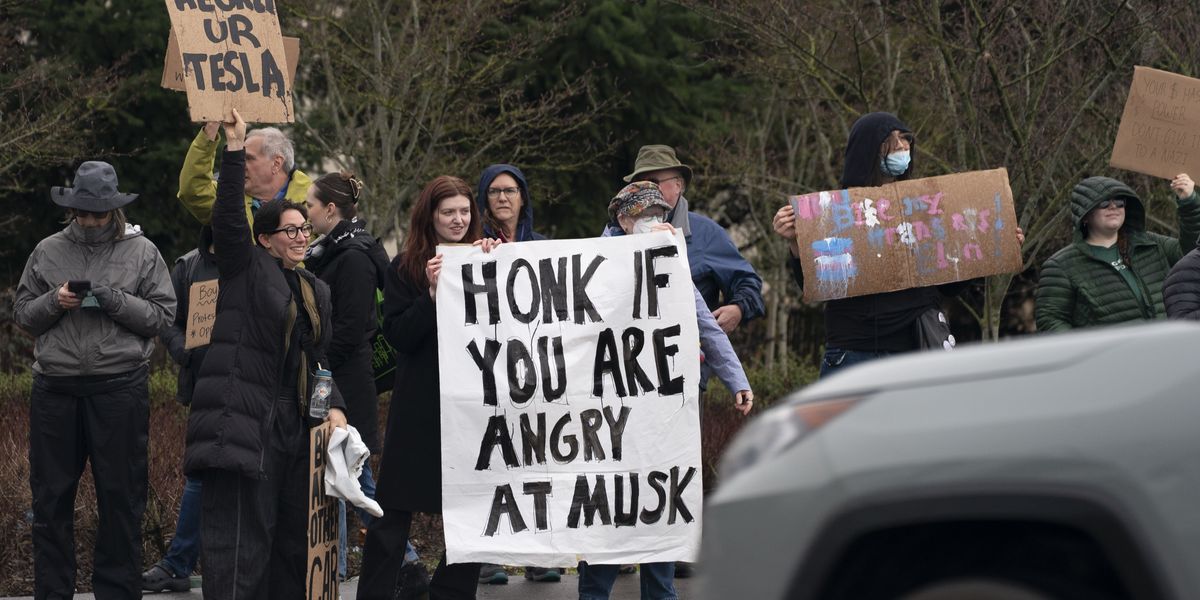
GOP Lawmakers Face Growing Backlash to Trump-Musk Agenda | Common Dreams
February 23, 2025
SDS Call for National Week of Action Against ICE
February 23, 2025
The conservative Christian Democrats party in Germany was the winner of the country’s elections on Sunday, with leader Friedrich Merz expected to be the next chancellor, beating the far-right Alternative for Germany.
But with the latter group coming in second place and doubling its vote share—winning 20.6% of the vote in the latest exit polls that were out at 4:00 pm Eastern time—progressives in other Western countries suggested the election results should still serve as an urgent warning for political parties like the U.K. Labour Party and the Democrats in the United States.
“Working-class communities need tangible improvements and hope—not more austerity or pandering to Reform in a race-to-the-bottom on immigration,” said British member of Parliament Zarah Sultana, referring to the right-wing British party that purports to be populist and prioritizes anti-immigration policies.
Progressives in the U.S. have pointed to the 2024 election, in which working-class voters from across racial demographics swung toward President Donald Trump, as evidence that Democrats must unequivocally support policies that benefit low- and middle-income people to win elections.
At Drop Site News, James Jackson wrote on Saturday about how Germany’s embrace of Staatsräson, making the country’s vehement support of Israel—and rejection of the push for Palestinian rights—a “reason of state,” helped pave the way for AfD’s rise:
Almost all German political parties, alongside local authorities and even cultural institutions have joined together in an alliance reaching from right and far-right through the center and even parts of the left to defend the “Reason of State” and crack down on migration from supposedly antisemitic countries, citizenship for foreigners, and civil liberties such as freedom of speech and assembly and academic freedom.
As a result, recent years have seen drastic repression against solidarity with Palestine in Germany, with criticism of Israel often portrayed as antisemitic. This has obviously only accelerated since Hamas’ attack on Israel on October 7, 2023 and Israel’s brutal war on Gaza.
[…]“The nationalist party has questionable interest in protecting Israel, but doing so helps wave away Nazi allegations while also pushing the notion that Jewish life is at risk from imported antisemitism,” say Chris Reiter and Will Wilkes in their forthcoming book about German decline, Broken Republik. The idea that antisemitism comes from abroad is “much easier for mainstream Germans to accept than the domestic variety. The assertion, which isn’t backed up by official statistics, helps promote an agenda that seeks to clamp down on migration from Muslim countries,” fitting right into the AfD’s agenda.
In Germany, both the Christian Democrats and Alternative for Germany (AfD) pushed anti-immigration platforms ahead of the election. The issue is a top priority for AfD, which has been classified as a suspected extremist group by German intelligence agencies and which has platformed candidates who have minimized the Holocaust, used Nazi slogans, and been linked to plots to overthrow the government.
The far-right party campaigned largely on claims of threats posed by refugees who have arrived in Germany from the Middle East, Afghanistan, and other parts of the world in recent years.
AfD garnered support from billionaire tech mogul Elon Musk, who addressed a rally held by the party days after displaying what appeared to be a Nazi salute at an event for U.S. President Donald Trump.
Trump’s vice president, JD Vance, also signaled support for AfD this month when he met with its leader, Alice Weidel.
At the Munich Security Conference, Vance admonished German political parties for the “firewall” that prevents them from forming government coalitions with extremist, anti-democracy groups like AfD.
“I expressly reject what U.S. Vice President Vance said at the Munich Security Conference,” said current Chancellor Olaf Scholz. “From the experience of National Socialism, the democratic parties in Germany have a common consensus: This is the firewall against extreme right-wing parties.”
In the U.S., journalist Mehdi Hasan expressed relief that AfD lost the election.
“But, worryingly and shockingly, they doubled their vote share,” he said, “partly in thanks to a boost from U.S. special government employee/world’s richest man Elon Musk who has no objection to their far-right extremism.”
Great Job Julia Conley & the Team @ Common Dreams Source link for sharing this story.





